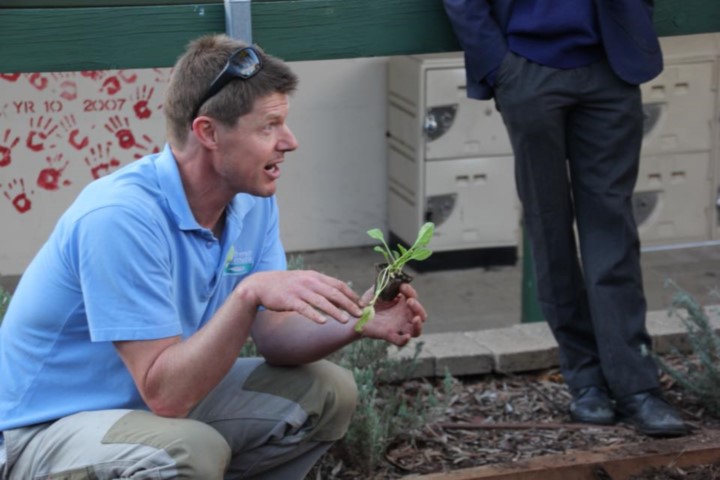Students at an Australian primary school are learning about sustainability, reaching out to the homeless, and helping to supply fresh food to area restaurants, all through the same project.


Students at an Australian primary school are learning about sustainability, reaching out to the homeless, and helping to supply fresh food to area restaurants, all through the same project.
The Barossa school, Tanunda Lutheran School, in Tanunda, South Australia sits adjacent to local businessman Scott Rogasch’s family vineyard, and the former TLS student is working with his alma mater to launch the first of several community gardens. Rogasch runs Forage Supply Co., a nonprofit food van, with buddy Justin Westhoff, and the duo are teaming up with schools to educate students about sustainable farming practices through work in the gardens, which they’ll use to feed folks who are struggling to get sufficient food to feed themselves.
In mid-June, Rogasch converted a plot of land into five large garden beds, with seats and trellises for students gather for outdoor lessons.
According to the Barossa Herald:
For school principal Darren Stevenson, the initiative was not only a “stroke of luck” to be located next door, but also a great opportunity for student learning.
He, with Mr Rogasch, said the garden beds would be worked on by students from the Out of School Care Hours program who would in turn learn about sustainable practices and have access to healthier food.
In addition, Forage Supply Co and other local restaurants will purchase produce from the school and use it to create sustainable meals.
The garden, the first of more to come if all goes well, would also use the fruits of students’ labor “to donate more meals to the homeless at the Hutt Street Centre,” Rogasch told the news site.
Forest Supply Co. is now raising funds for several community gardens, and it has so far received about $5,500 in donations toward a goal of $20,000. Rogasch said he started the company with Westhoff last year because the world “consumes too much food and materials,” and the two are ultimately hoping to change that dynamic.
“The world’s population is growing by 228,000 people every day and the earth contains a finite amount of resources,” he told the Herald. “It’s vital we play our part to restore balance and protect the natural world from further destruction.”
Researchers at the Institute for Advanced Studies in Culture highlight the importance of adult role models in “The Content of Their Character,” an analysis of character education programs in a wide variety of school settings.
“What these case studies also consistently show is the importance of the informal articulation of a moral culture through the example of teachers and other adults in the school community,” IASC researchers wrote. “The moral example of teachers unquestionably complemented the formal instruction students received, but arguably, it was far more poignant to, and influential upon, the students themselves.”
The Jesuit Schools Network provides a helpful starting place for educators to consider how community service can cultivate strong character virtues in students with its “Profile of the Graduate,” which examines what the school system expects from students before they graduate.
“The Jesuit high school student at graduation has acquired considerable knowledge of the many needs of local, national, and global communities and is preparing for the day when he or she will take a place in these communities as a competent, concerned and responsible member,” the profile reads.
“The graduate has been inspired to develop the awareness and skills necessary to live in a global society as a person for and with others.”
For further reading on CultureFeed